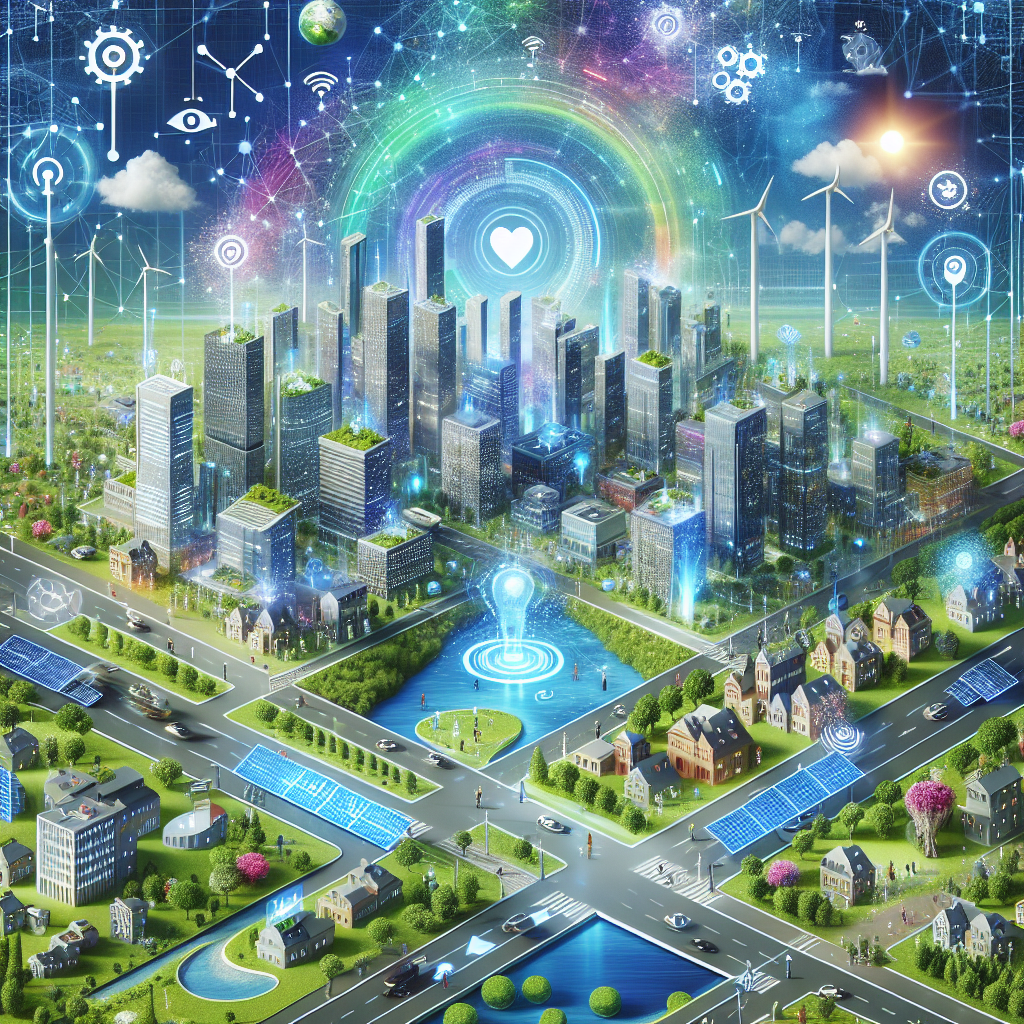Smart Cities 4.0: How AI is Driving Sustainable Urban Growth
In recent years, the concept of smart cities has gained increasing attention as urban populations continue to grow and cities face a myriad of challenges such as traffic congestion, pollution, and resource management. Smart cities harness the power of technology and data to improve the quality of life for residents and drive sustainable urban growth.
One of the key technologies driving the evolution of smart cities is artificial intelligence (AI). AI is revolutionizing the way cities are managed and operated, enabling them to become more efficient, sustainable, and responsive to the needs of their citizens.
AI-powered smart cities, also known as Smart Cities 4.0, are characterized by their ability to collect and analyze vast amounts of data in real-time, enabling city officials to make data-driven decisions that optimize resources and improve services. From traffic management to waste management, AI is being used in a variety of ways to make cities smarter and more sustainable.
Traffic Management
One of the most visible applications of AI in smart cities is in traffic management. AI-powered systems can analyze traffic patterns in real-time, predict congestion hotspots, and optimize traffic flow by adjusting traffic signals and rerouting vehicles. By reducing traffic congestion, cities can lower emissions, improve air quality, and enhance the overall quality of life for residents.
Waste Management
AI is also being used to optimize waste management in smart cities. By analyzing data on waste generation, collection routes, and recycling rates, AI can help cities develop more efficient waste management strategies that reduce costs and minimize environmental impact. For example, sensors can be placed in garbage bins to monitor fill levels and optimize collection routes, reducing fuel consumption and emissions.
Energy Management
AI is playing a crucial role in energy management in smart cities, helping to optimize energy usage, reduce costs, and lower carbon emissions. AI-powered systems can analyze data on energy consumption, weather patterns, and building performance to optimize energy usage in buildings, street lighting, and public transportation. By reducing energy wastage and promoting renewable energy sources, AI is helping cities become more sustainable and resilient to climate change.
Public Safety
AI is also being used to enhance public safety in smart cities. AI-powered systems can analyze data from surveillance cameras, social media feeds, and other sources to detect potential threats and predict crime hotspots. By enabling law enforcement agencies to respond more quickly and effectively to incidents, AI is helping to make cities safer and more secure for residents.
Healthcare
AI is revolutionizing healthcare in smart cities, enabling more personalized and efficient healthcare services for residents. AI-powered systems can analyze medical data, genetic information, and lifestyle factors to predict and prevent diseases, tailor treatment plans to individual patients, and improve healthcare outcomes. By harnessing the power of AI, smart cities can provide better healthcare services to residents and promote healthier lifestyles.
FAQs
Q: What are the benefits of AI in smart cities?
A: AI in smart cities offers a wide range of benefits, including improved efficiency, lower costs, enhanced sustainability, and better quality of life for residents. By harnessing the power of AI, cities can optimize resources, reduce emissions, and enhance services in areas such as traffic management, waste management, energy management, public safety, and healthcare.
Q: How can AI help cities become more sustainable?
A: AI can help cities become more sustainable by optimizing resource usage, reducing energy consumption, lowering emissions, and promoting renewable energy sources. By analyzing data in real-time and making data-driven decisions, AI-powered systems can help cities develop more efficient and environmentally friendly strategies for managing traffic, waste, energy, public safety, and healthcare.
Q: What are some examples of AI applications in smart cities?
A: Some examples of AI applications in smart cities include traffic management systems that optimize traffic flow, waste management systems that optimize waste collection routes, energy management systems that optimize energy usage, public safety systems that predict and prevent crime, and healthcare systems that personalize treatment plans for patients. AI is being used in a variety of ways to make cities smarter, more efficient, and more sustainable.
In conclusion, AI is driving sustainable urban growth in smart cities by enabling cities to harness the power of technology and data to optimize resources, reduce emissions, and enhance services for residents. Smart Cities 4.0 are leveraging AI to become more efficient, sustainable, and responsive to the needs of their citizens, paving the way for a more sustainable and livable urban future.

